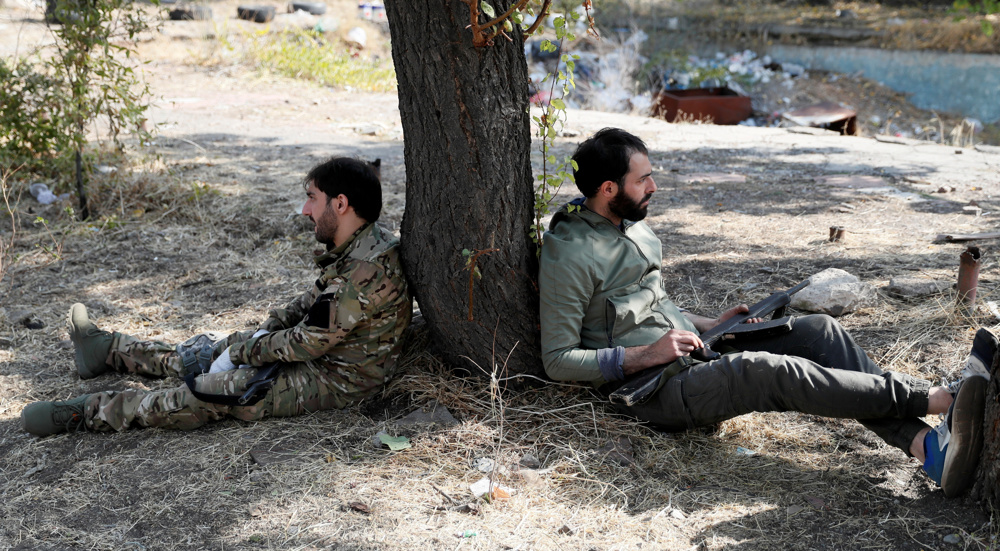Armenian, Azeri FMs meet mediators in Geneva amid talks to end Nagorno-Karabakh fighting
Armenian Foreign Minister Zohrab Mnatsakanyan and his Azerbaijani counterpart, Jeyhun Bayramov, have met international mediators in Geneva amid efforts to reach a ceasefire over the disputed region of Nagorno-Karabakh.
The ministers met envoys from France, Russia, and the United States, the co-chairs of the so-called Minsk Group, which was formed to remedy the conflict, on Friday, a diplomat in the Swiss city told Reuters.
Azerbaijan and Armenia have been locked in the worst fighting over Nagorno-Karabakh in more than 25 years.
Karabakh is internationally recognized as part of Azerbaijan, but it is held by ethnic Armenian separatists backed by Armenia since 1992, when they broke from Azerbaijan in a war that killed some 30,000 people.
Three attempts to establish a lasting ceasefire in the region have failed in the past.
The ongoing fighting erupted in late September.
Two earlier Russia-brokered ceasefire agreements collapsed immediately after taking effect, with each side accusing the other of violating the truce.
Sporadic fighting continued on Friday. Azerbaijan's Defense Ministry said military positions and settlements in the Aghdere, Khojavend, and Gubadli regions had come under fire.
The self-proclaimed administration in Nagorno-Karabakh claimed its forces had repelled attacks by Azeri soldiers and residential areas in the region had came under repeated shelling.
It also said it had captured a militant from Syria.
There have been reports that Turkey, which backs Azerbaijan, has deployed militants from Syria to support Azerbaijan. Ankara and Baku have denied the claims.
The talks come as Amnesty International and Human Rights Watch said they had independently confirmed the use of cluster munitions either fired or supplied by Armenian forces in an attack on the Azeri city of Barda on Wednesday.
The two rights group also urged an immediate halt to the use of banned weapons by both sides.
Last week, HRW reported that Azerbaijan had used cluster munitions in at least four separate incidents.
Russia downs over 40 Ukrainian drones as Putin vows 'destruction' on Kiev
VIDEO | Yemen: A bone in Israeli neck
D-8’s role in Iran’s economy after Cairo summit
China slams US as ‘war-addicted’ threat to global security
China ‘firmly opposes’ US military aid to Taiwan
VIDEO | Press TV's News Headlines
President Yoon Suk Yeol to be removed from office
At least 19 Gazans killed by Israeli airstrikes since dawn: Medics















 This makes it easy to access the Press TV website
This makes it easy to access the Press TV website